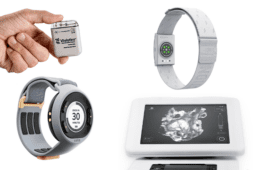A California state court has given a green light to a series of product liability lawsuits brought against Bayer Corporation and several of its subsidiaries by 14 women who alleged that they sustained injuries from Bayer’s permanent birth control device Essure.
The plaintiffs’ actions are currently being brought as 11 separate suits in California; along with Grant & Eisenhofer, law firms Janet, Jenner & Suggs, LLC and Motley Rice LLC also represent plaintiffs in the actions.
The suits contend that Essure, an FDA-approved medical device on the market since 2002, has since caused a number of problems and physical injuries in thousands of women who have had the device implanted.
The device, which consists of two spring-like coils that are inserted into the fallopian tubes, is implanted as a quick outpatient procedure and is designed to be implanted for life. The suits contend that the Essure device can come out of place and could puncture the uterus and in various cases cause chronic pelvic pain, excessive bleeding, and can result in unintended pregnancies. Plaintiffs contend that one key problem with the device is that, given its high failure rate, its problems are exacerbated because there is no established procedure for its removal.
In three separate rulings dated Aug. 2 and authored by Judge Winifred Y. Smith, the Superior Court of California in Alameda County rejected several defenses raised by the Bayer defendants.
The first decision rejected Bayer’s defense of federal preemption, in which Bayer argued that because the FDA approved the marketing and warning labels that they should not be held liable for any injuries associated with the device. The second ruling on jurisdiction determined that California was the proper venue for the suits, rejecting Bayer’s argument that plaintiffs who were not California residents should be required to litigate in their home states. In the third ruling, the court rejected the Bayer defendants’ argument that plaintiffs’ claims accrued outside of the statute of limitations.
The court agreed with the plaintiffs’ contention that the discovery of their causes of action occurred no earlier than September 2015, when the FDA held hearings, and that patients were unable to have made earlier discovery because of the defendants’ concealment of essential relevant facts.
Essure is still being implanted in patients today, but FDA announced in February 2016 that the device will require a black box warning indicating extreme risks and possible serious injuries associated with its usage. It includes warnings that the device can migrate out of place, cause chronic pelvic pain, and related symptoms.




